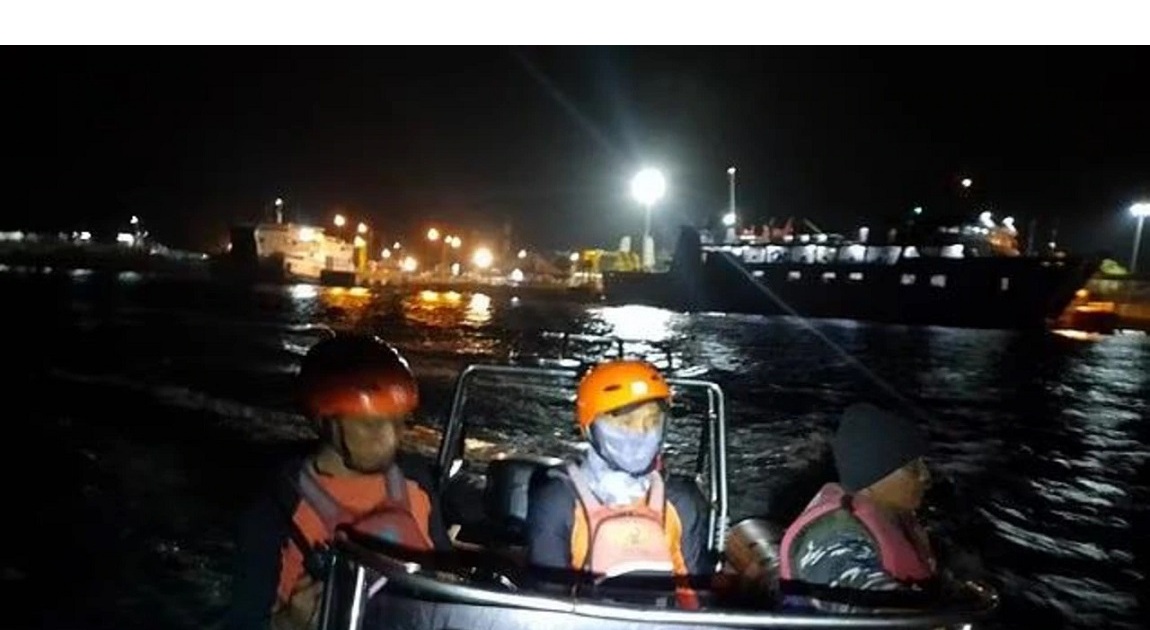Indonesian rescue teams are racing against time to locate 11 people who remain unaccounted for after a boat sank amid rough seas near the Mentawai Islands, located off the coast of West Sumatra province.
The tragic incident, which occurred earlier this week, has already claimed six lives, including that of a three-year-old boy whose body was recovered on Thursday evening, according to local authorities.
Search and rescue operations, led by the West Sumatra Search and Rescue Agency, were temporarily suspended late Thursday due to poor visibility conditions, said Nanang Sigit, head of the agency.
Sigit noted that so far, 29 passengers have been successfully rescued, although many were found drifting in the sea for hours.
Some of these passengers were reportedly unconscious due to exhaustion and exposure.
Efforts to locate the remaining missing individuals resumed on Friday morning.
Rescuers fear that more victims could still be trapped inside the sunken vessel, which has been fully submerged since the accident.
“Right now, we are prioritizing surface searches, but we do not rule out the possibility that there are victims inside the ferry,” Sigit explained.
The boat was reportedly caught in severe weather conditions while navigating the waters off Indonesia’s western coast.
Although the exact details surrounding the incident are still emerging, early reports suggest that high waves and strong winds contributed to the vessel’s capsizing.
In the wake of the tragedy, distraught families gathered anxiously at the ferry’s departure port, desperate for updates.
Many broke down in tears, hoping their loved ones were among the rescued.
Authorities have set up emergency support services to provide updates and assist grieving families.
Indonesian President Prabowo Subianto, currently on an official visit to Saudi Arabia, has called for an urgent and comprehensive emergency response.
Cabinet Secretary Teddy Indra Wijaya relayed the president’s directive, confirming that the primary cause of the accident was adverse weather.
This latest maritime disaster has once again spotlighted Indonesia’s ongoing struggles with transport safety.
The sprawling Southeast Asian archipelago comprises around 17,000 islands, making sea travel a vital mode of transportation for millions.
However, a history of lax safety regulations, vessel overloading, and insufficient life-saving equipment has led to repeated tragedies at sea.
In recent years, such accidents have become all too frequent.
Just this past March, a boat carrying 16 people capsized in turbulent waters near Bali, resulting in the death of an Australian tourist and injuries to others.
In one of the worst maritime disasters in recent Indonesian history, over 150 people lost their lives in 2018 when a ferry sank in Lake Toba, one of the deepest lakes in the world, located on Sumatra island.
Authorities say they are committed to improving safety standards, but enforcement remains a significant challenge, especially in remote regions with limited oversight.
Investigations into the current incident are expected to focus on weather conditions, vessel capacity, and compliance with safety protocols.
As rescue efforts continue, the priority remains saving lives.
Divers are expected to be deployed if necessary to examine the submerged wreck for any remaining passengers.
Meanwhile, the government has promised full support for the victims’ families, including counseling services and financial assistance.
The Mentawai Islands, known for their picturesque landscapes and popular with surfers, are accessible mainly by sea, making them particularly vulnerable to such maritime incidents.
The latest tragedy serves as a sobering reminder of the risks associated with marine travel in a region where unpredictable weather and limited infrastructure often intersect with insufficient regulation.
With dozens still missing and hopes fading by the hour, rescuers are battling both natural elements and time in a desperate bid to avert further loss of life.
The nation watches anxiously as the search unfolds, mourning the lives lost while demanding answers and accountability in the wake of yet another preventable disaster.



